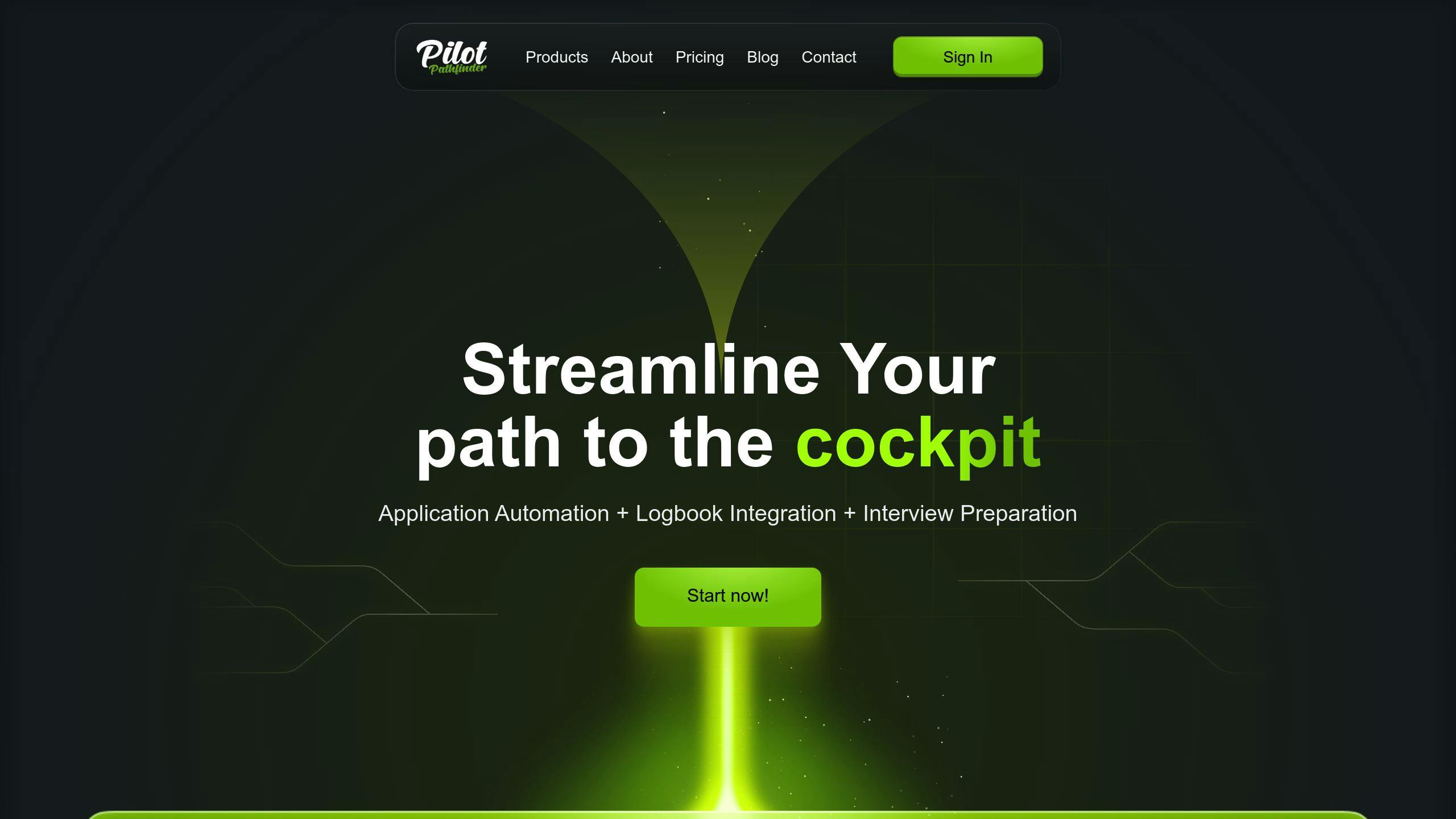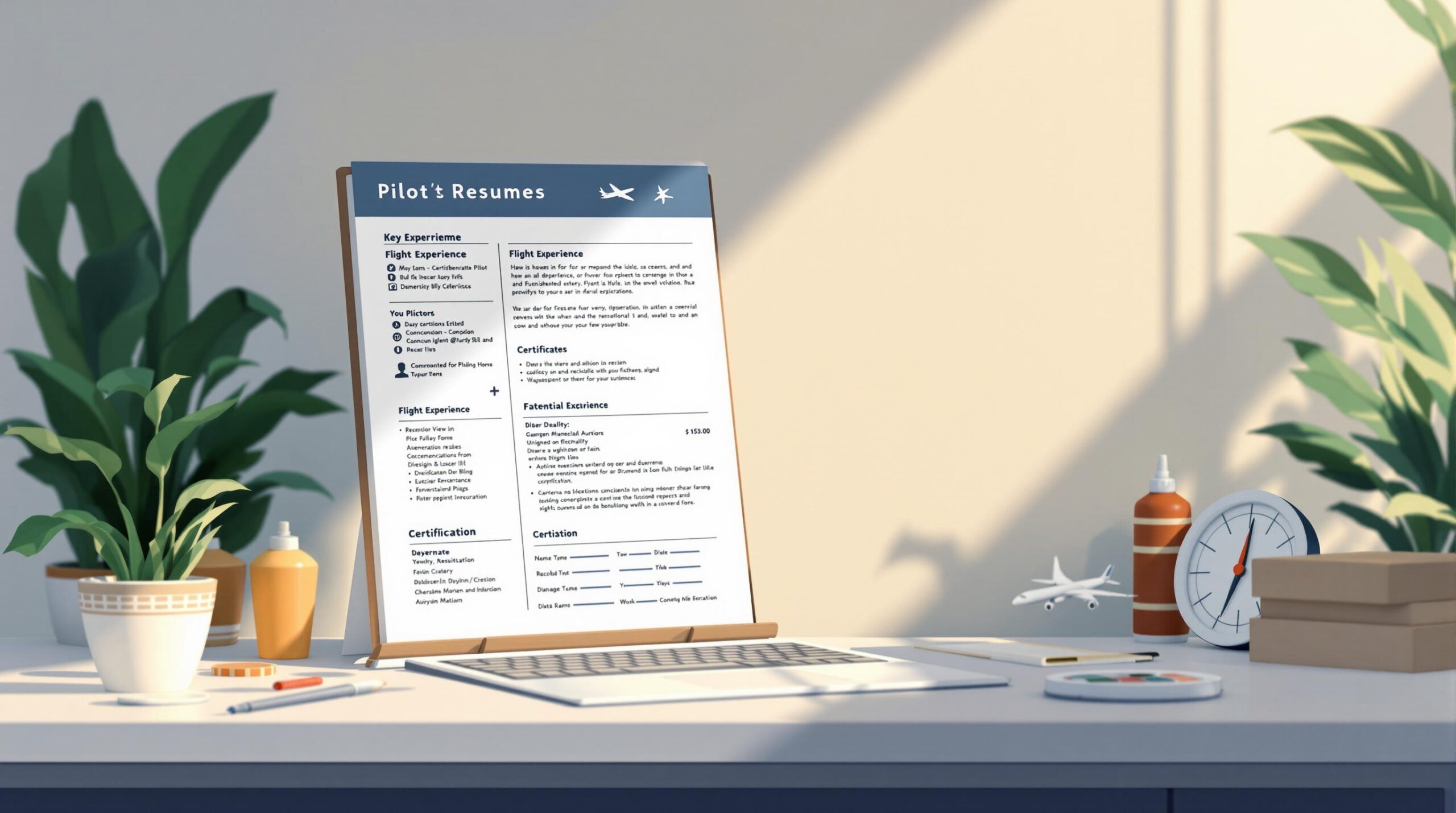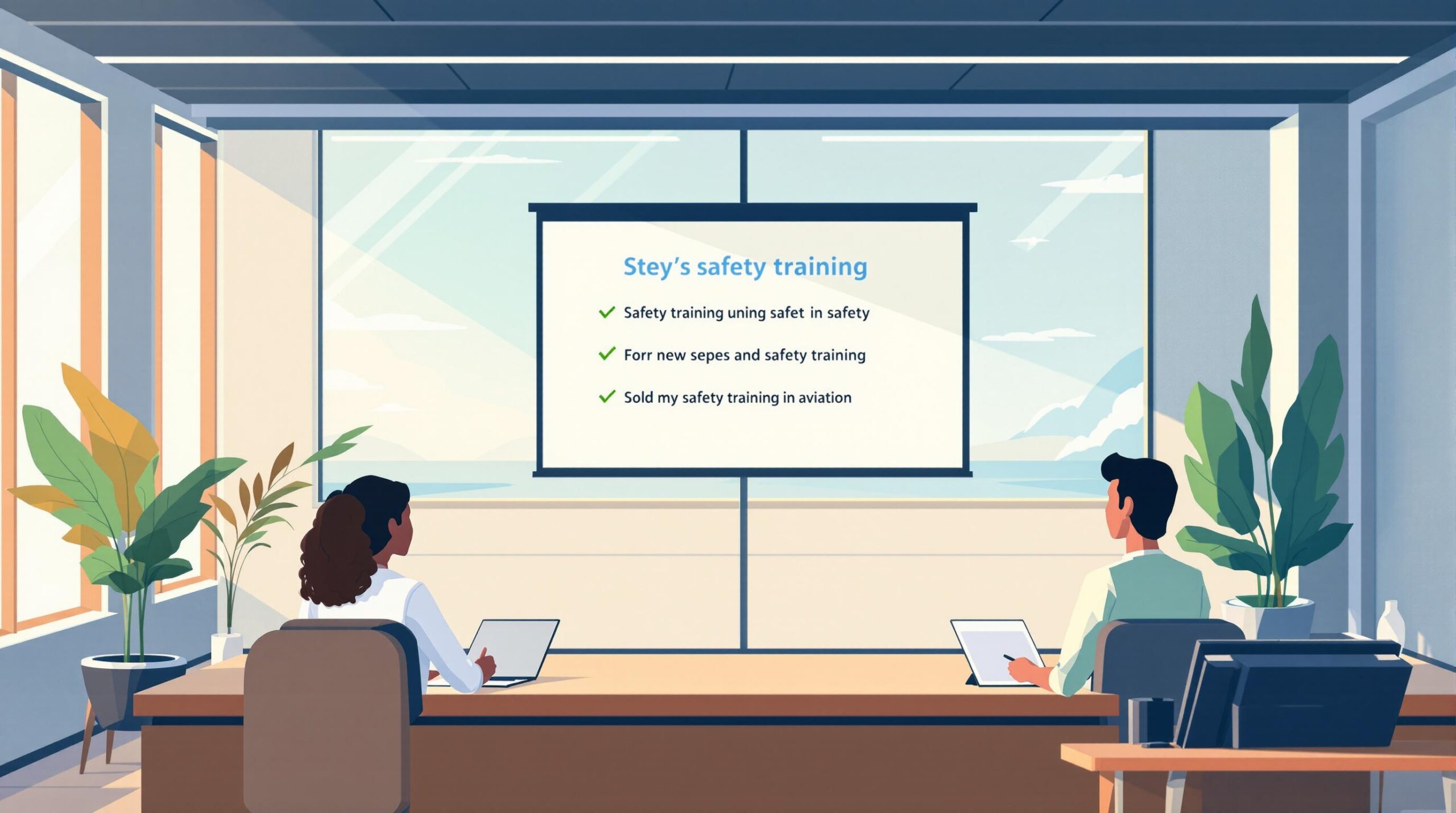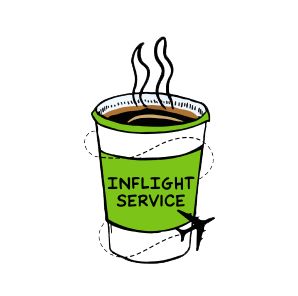Networking is crucial for advancing your aviation career. Whether you’re aiming for a major airline job or seeking mentorship, building connections can open doors to opportunities you can’t find elsewhere. Here’s a quick summary of the article’s main points:
- Why Networking Matters: It helps you access hidden job openings, mentorship, and industry insights.
- Preparation Tips: Research events, bring a polished resume, and set clear goals.
- 7 Networking Tips:
Networking isn’t just about meeting people – it’s about forming genuine, lasting relationships that can propel your career forward. Read on for detailed strategies and tools to make the most of aviation career events.
Need to Network in Aviation? Here’s How to do it
The Importance of Networking in Aviation
In aviation, building connections isn’t just a nice-to-have – it’s a key part of advancing your career. Success in this competitive field often depends on who you know, not just how well you fly.
Networking and Career Growth
Making professional connections can unlock opportunities that might otherwise be out of reach. Networking gives pilots access to mentorship and insider tips on airline hiring processes. Groups like AOPA and NBAA offer direct connections to industry leaders and mentorship programs [3].
"Effective networking can transform your pilot career by opening doors through events, organizations, social media, mentorship, and volunteering." – Brandon Martini, COO, Stratus Financial [3]
Challenges Pilots Face in Job Searching
The aviation industry comes with unique hurdles, making networking even more important. Securing a spot at a major airline is highly competitive, and hiring decisions often go beyond technical skills. Here’s where networking can make a difference:
| Challenge | How Networking Helps |
|---|---|
| Competitive Job Market | Provides early access to job openings and insights into hiring practices |
| Beyond Technical Skills | Creates chances to highlight leadership and communication abilities |
| Staying Updated | Keeps pilots aware of new trends and industry requirements |
Attending events and joining organizations not only helps pilots stay informed but also builds long-term support systems that can benefit their careers [1]. These connections often lead to mentorships and opportunities that aren’t advertised elsewhere [3].
Now that you know why networking matters, it’s time to focus on how to prepare for aviation career events to make the most of these opportunities.
Preparing for Aviation Career Events
A thoughtful plan can help you make the most of networking opportunities and leave a strong impression on industry professionals.
Researching the Event and Attendees
Preparation is key to effective networking, and it all starts with understanding the event. Focus on learning about the airlines and organizations that will be present.
| Research Area | Key Actions |
|---|---|
| Event Details | Look into the schedule, location, dress code, and the companies attending. |
| Key Personnel | Find out who the recruiters and industry leaders are. |
| Discussion Topics | Stay informed about current industry trends and news. |
Creating a Professional Image
Dressing professionally is just one part of presenting yourself well. You’ll also need to highlight your skills and ambitions.
What to Bring:
- A polished, aviation-specific resume
- Professional business cards
- A 30-second elevator pitch that explains your background and goals
- A digital portfolio or a summary of your logbook
Setting Networking Goals
Define clear goals to guide your efforts during the event. Think about what you want to achieve both immediately and in the future.
Short-term Goals:
- Speak with recruiters to understand their hiring processes
- Collect details about available training programs
Long-term Goals:
- Develop mentor relationships
- Join aviation-related organizations
- Build a strong industry support network
Focus on meaningful conversations rather than trying to meet as many people as possible. Tools like Pilot Pathfinder can help you track applications and prepare for interviews, making follow-ups easier [2].
With solid preparation and clear goals, you’re well-equipped to make a lasting impact at the event. Next, we’ll dive into actionable tips to elevate your networking game.
sbb-itb-de05b1b
7 Tips for Effective Networking at Aviation Events
Once you’re prepared, it’s time to focus on networking strategies that can help you grow your aviation career.
1. Attend Aviation Events Regularly
Showing up at aviation events consistently helps build your reputation in the industry. Large gatherings like the NBAA Business Aviation Convention or smaller regional airshows are great places to meet a wide range of professionals.
2. Become Part of Aviation Organizations
Joining groups such as AOPA or NBAA gives you access to workshops, mentorship programs, and other networking opportunities. These organizations are excellent for meeting people and expanding your professional circle.
3. Use Social Media to Your Advantage
Platforms like LinkedIn are perfect for showcasing your certifications, joining aviation-focused groups, and connecting with recruiters. By sharing insights and engaging with others, you can increase your visibility in the aviation world.
4. Seek Out a Mentor
Look for experienced professionals who align with your career goals. You can find mentors through formal programs, events, or even on LinkedIn. A good mentor can offer advice and help guide your career decisions.
5. Volunteer at Industry Events
Helping out at events – whether it’s managing registration or assisting with safety briefings – allows you to interact with key players in the industry. These roles often lead to meaningful conversations and connections.
6. Be Active During Events
Engage with others by asking thoughtful questions and participating in discussions. Pay attention during presentations and breakout sessions to create quality interactions that leave a lasting impression.
7. Follow Up Afterward
Don’t let those connections fade. Send personalized messages that reference your conversations and keep in touch by sharing updates or congratulating them on milestones. This effort helps turn brief encounters into lasting professional relationships [3].
Tools to Simplify Your Pilot Career Journey
Attending aviation events is just the start of building connections. Digital tools can help you turn those connections into real opportunities by making follow-ups and applications easier to handle. The right tools can also help you stay organized and professional throughout the process.
Pilot Pathfinder

Pilot Pathfinder is designed to bridge the gap between networking and securing airline jobs. It offers tools for job applications, logbook management, resume creation, and interview prep – all in one place.
Here’s how it can support your networking efforts:
| Feature | How It Helps You Network |
|---|---|
| Automated Application System | Apply quickly to jobs you learn about at career fairs |
| Logbook Integration | Share clean, professional flight data with recruiters |
| Resume Builder | Easily customize resumes for different airlines you connect with |
| Interview Preparation Tools | Get ready for airline-specific interview questions |
Conclusion
In aviation, networking can give pilots a clear edge for advancing their careers and growing professionally. By preparing thoroughly, you can make a strong impression and turn brief meetings into meaningful connections.
The key is to make the most of your time during networking events. Asking thoughtful questions and having engaging conversations can leave a lasting impression and open doors to opportunities that aren’t widely advertised. Following up afterward in a professional way reinforces these connections and shows your dedication to building relationships.
Networking in aviation isn’t a one-time task – it’s an ongoing process. Whether it’s joining industry organizations, finding mentors, or volunteering at events, these efforts help lay the groundwork for long-term career growth. The people you connect with today might play a pivotal role in your next career step.
Take every chance to grow your network. Attend aviation events, get involved in professional groups, or connect with industry peers on social media. Each interaction broadens your reach and increases your visibility in the field.
Finally, treat networking as a way to build genuine relationships, not just a numbers game. By focusing on real connections and applying these strategies consistently, you can turn casual meetings into lasting professional relationships that support your career goals. Every effort, from volunteering to online engagement, helps create a network that can propel your career forward.
FAQs
How to network in the aviation industry?
Building connections in the aviation industry is key for pilots looking to advance their careers. Events like the NBAA Business Aviation Convention offer opportunities to meet industry leaders and recruiters face-to-face [1].
Here are some effective ways to network in aviation:
- Join Professional Organizations: Groups like AOPA and NBAA host events and provide access to resources that can help you connect with others in the field [1].
- Use Digital Platforms: Platforms like LinkedIn are great for joining aviation-related groups, sharing your expertise, and connecting with recruiters [3].
- Find a Mentor: A mentor aligned with your career goals can provide advice and introduce you to valuable contacts [3].
The table below highlights different networking channels and their advantages:
| Networking Channel | Benefits | Best For |
|---|---|---|
| Industry Events | Personal interaction with recruiters | Immediate job leads |
| Professional Organizations | Access to events and exclusive resources | Long-term career growth |
| Social Media | Expanding reach through consistent activity | Building an online presence |
| Volunteering | Gaining experience while networking naturally | Forming genuine relationships |
When attending networking events, always bring updated materials like your resume and have thoughtful questions ready. Focus on forming genuine connections instead of just collecting business cards [1].
If you’re targeting airline jobs, tools like Pilot Pathfinder can streamline your application process while you work on building professional relationships [2].




